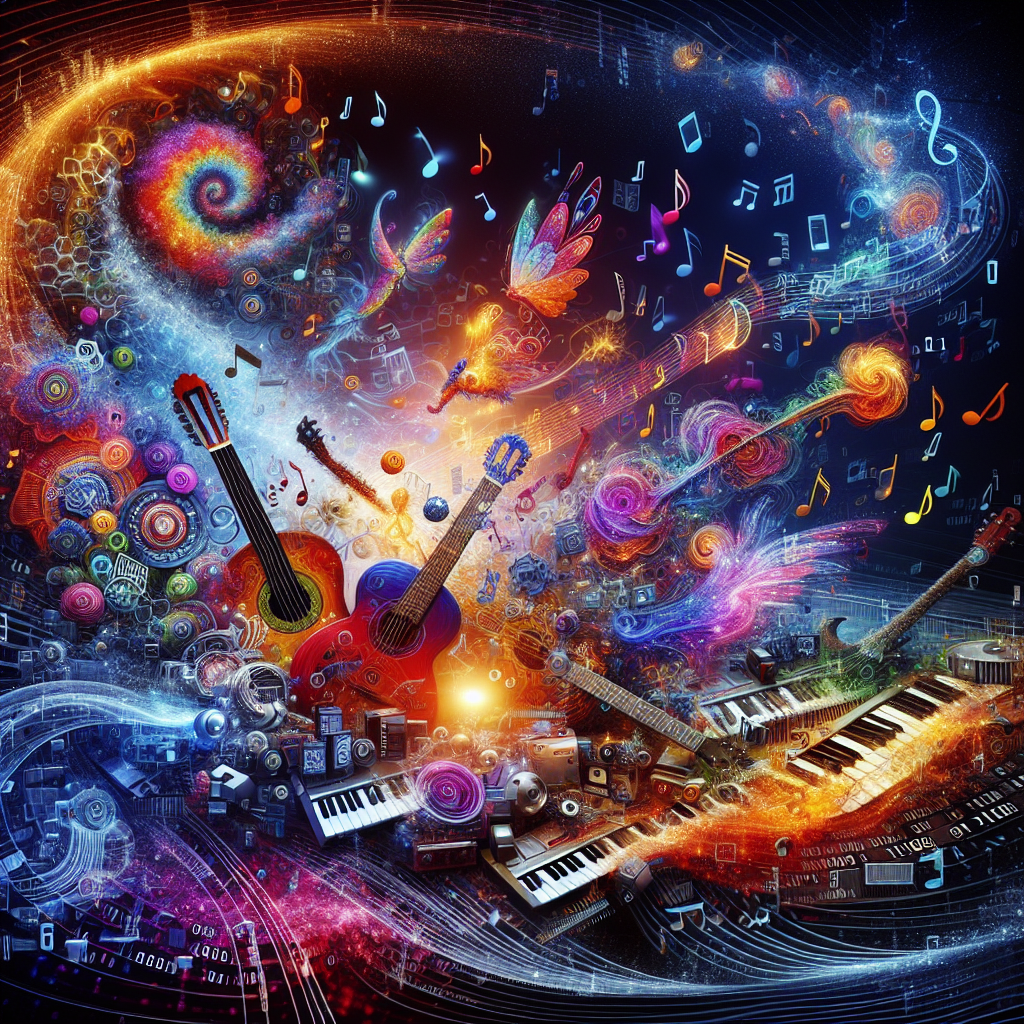Unraveling the Symphony of AI-Generated Music: A Deep Dive into the Trends Shaping Our Musical Future
Artificial Intelligence (AI) is not just transforming the way we live and work, but it's also tuning up to revolutionize the music industry. With the advent of AI music generators like 'udio' joining the symphony alongside predecessors like 'sunno', the melody of music creation is undergoing a fascinating metamorphosis. Let's harmonize our knowledge about these AI tools, delving into their capabilities, market implications, and how they're hitting the high notes of technological innovation.
The New Maestro on the Block: Udio
Udio, reminiscent of studio sans 'St', is the new rockstar of AI music generation. Like a maestro wielding a baton, this tool takes a simple prompt and orchestrates a complete musical piece—lyrics, melody, and even the harmonics of multiple singers. Its emergence is turning heads across the digital landscape, heralding a new era where anyone can be a music creator.
In essence, Udio simplifies music production, making it accessible to the masses. Its capability to handle multiple vocal tracks with nuanced emotion and harmony is not just impressive; it's revolutionary. This tool democratizes music creation, enabling users with minimal musical expertise to compose tracks that resonate with professional allure.
Competing Voices: Sunno and Sonado
Before Udio’s crescendo into the market, Sunno was the tool that impressed with its AI music compositions. It offered a glimpse into the potential of AI in crafting not only the functional aspects of music but also its soul. However, unlike Udio, Sunno and its Y Combinator-backed counterpart Sonado, have their distinct flavors in music generation.
Sonado introduces an interesting twist to AI music making. By allowing users to input an artist's name, it tries to infuse the style and essence of real-world musicians into its compositions, though with varying degrees of success. It stands out by using a different technological approach, focusing more on a latent diffusion model which, although a bit more mechanically sounding, renders a unique auditory experience.
The Sound of Tech: AI's Role in Music Evolution
The integration of AI in music is not just about generating new songs. It's about crafting experiences and emotions through a computational lens. Each of these tools—Udio, Sunno, and Sonado—use cutting-edge AI technology, but they diverge in execution and outcomes.
While Udio leverages powerful backing and extensive market resources, promising a robust user experience, Sunno and Sonado provide more nuanced tools that may appeal to different segments of music enthusiasts. These platforms are refining their algorithms, continuously improving to better mimic human creativity and artistry.
Market Dynamics and Consumer Engagement
The rise of AI music generators is also reshaping the music industry’s market dynamics. By lowering barriers to music creation, these tools are enabling a surge of content creators. This democratization might lead to an oversaturation of music content, challenging traditional artists and producers but also opening up new avenues for creativity and innovation.
Moreover, as these tools become more mainstream, consumer engagement is likely to increase, with more individuals participating in music creation, sharing, and collaboration. This could potentially lead to a new cultural shift in music consumption and production, influenced heavily by AI.
Ethical Considerations and Future Harmonics
With great power comes great responsibility, and AI-generated music is no exception. Ethical considerations around copyright, creativity, and the role of AI in art are crucial. As AI continues to blur the lines between human and machine-created content, the music industry must navigate these challenges carefully.
The future harmony between AI and music looks promising. With ongoing advancements, we may soon witness AI not only emulating human music creation but also bringing new dimensions to it that were previously unimaginable. The potential for AI to collaborate with human artists, offering tools that augment the creative process rather than replace it, is an exciting prospect.
In conclusion, as AI continues to conduct more of our music, the industry must tune into these changes, adapting to a landscape where technology and creativity play a duet. The melody of AI-generated music is just beginning, and its evolution will be a fascinating watch—or listen.
For those intrigued by the convergence of AI and music, further exploration into the capabilities and impact of these technologies is certainly warranted. Engaging with platforms like Udio can provide valuable insights into the future of music, shaped by the hands of artificial intelligence.
Related News
- Ushering In the New Era of AI Music Generation: A Deep Dive into UdiO AI
- Navigating the Symphony of AI: A Deep Dive Into the Future of Music Generation
- Unpacking the Udio Experience: A Deep Dive into the Latest AI Music Sensation
- Exploring the Potential of AI Music Generators: A Detailed Analysis
- The Symphony of Silicon: A Deep Dive into the Next Wave of AI-Generated Music
